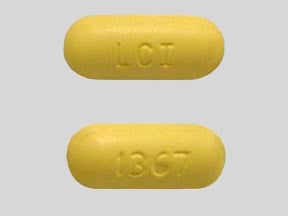
Probenecid Coupons & Savings Card – Discount Prices from $134.46
My prescription
Edit
500MG, Probenecid (180 Tablets)
Select pharmacy

CVS
$172.32
COUPON PRICE
Walgreens
$134.46
COUPON PRICE
Albertsons
$149.10
COUPON PRICE
Walmart
$270.64
COUPON PRICEProbenecid savings card
Show this card to your pharmacist
Walgreens
$134.46
BIN
ID
PCN
GRP
019876
LHDE8AF4A3
CHIPPO
LHX
Powered by
Probenecid dosage forms
Dosage Quantity Price from Per unit 500MG 180 Tablets $134.46 $0.75 500MG 2 Tablets $5.13 $2.56 500MG 8 Tablets $13.02 $1.63 500MG 15 Tablets $18.71 $1.25 500MG 90 Tablets $76.23 $0.85 500MG 100 Tablets $82.70 $0.83 500MG 1000 Tablets $665.00 $0.67
| Dosage | Quantity | Price from | Per unit |
|---|---|---|---|
| 500MG | 180 Tablets | $134.46 | $0.75 |
| 500MG | 2 Tablets | $5.13 | $2.56 |
| 500MG | 8 Tablets | $13.02 | $1.63 |
| 500MG | 15 Tablets | $18.71 | $1.25 |
| 500MG | 90 Tablets | $76.23 | $0.85 |
| 500MG | 100 Tablets | $82.70 | $0.83 |
| 500MG | 1000 Tablets | $665.00 | $0.67 |
Probenecid Warnings
This medication comes with important safety information that you should be aware of. Please read the following warnings and contraindications carefully and discuss any concerns with your healthcare provider.
Kidney Stones: While taking this medication for gout, there is a possibility of developing kidney stones. It is advised to drink plenty of water daily during treatment. Contact your healthcare provider if you experience severe back or stomach pain, blood in your urine, or fever and chills, as these could be signs of kidney stones.
Blood Problems in Certain Individuals: Individuals with a genetic condition known as Glucose-6-phosphate dehydrogenase (G6PD) deficiency may have an increased risk of encountering rare but serious blood issues, such as low white blood cell counts or anemia (low red blood cell counts). Symptoms of low white blood cell counts include frequent illnesses, while anemia can present as fatigue, weakness, dizziness, or pale skin. If you have G6PD deficiency or experience these symptoms, consult your healthcare provider to explore alternative gout medications.
Contraindications: There are specific conditions under which this medication should not be used due to the potential for severe health risks. Consult your healthcare provider if any of the following apply to you:
- Children under 2 years of age
- Existing blood problems
- History of uric acid kidney stones
- Concurrent use of aspirin
Always follow your healthcare provider’s guidance and report any adverse effects or concerns during your treatment.
Probenecid Side Effects
Common side effects:
- nausea
- headache
- dizziness
- vomiting
- loss of appetite
- sore gums
- frequent urination
Less common but important to monitor:
- sudden gout attacks
- formation of kidney stones
Serious side effects:
- lower back pain
- difficult or painful urination
- changes in urine color or amount
- easy bruising or bleeding
- signs of infection like fever and sore throat
- severe abdominal pain
- pale stools
- unusual tiredness
- dark urine
- yellowing of the eyes or skin
- very serious allergic reaction
Probenecid Interactions
Interactions with high risk of serious adverse effects and should be avoided:
Interactions with moderate risk that may require dose adjustment, closer monitoring, or timing changes:
- Avibactam
- Baricitinib
- Cephalexin
- Citalopram
- Deferiprone
- Doripenem
- Indomethacin
- Lumateperone
- Methotrexate
- Naproxen
- Pegloticase
- Pexidartinib
- Sacituzumab Govitecan-hziy
- Zalcitabine
Interactions with low risk that usually do not require a change in therapy:
- Amoxicillin
- Aspirin
- Bismuth Subsalicylate
- CefditorenPivoxil
- Cefotaxime
- CefpodoximeProxetil
- Cefprozil
- Choline Magnesium Trisalicylate
- Ciprofloxacin
- Enprofylline
- Ertapenem
- Gatifloxacin
- Lorazepam
- Magnesium Salicylate
- Meropenem
- Norfloxacin
- Phenprocoumon
- Piretanide
- Pralatrexate
- Sodium Salicylate
- Sodium Thiosalicylate
- Zidovudine
- Zomepirac
